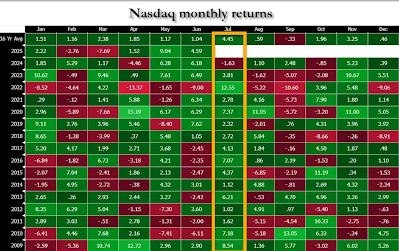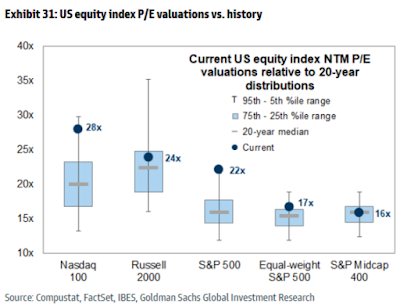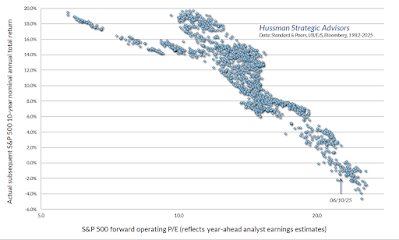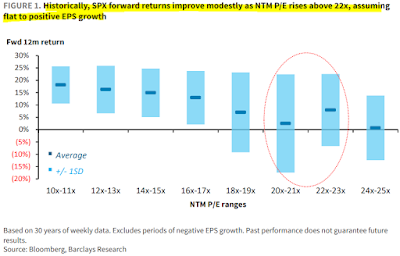The recent – and certainly not last – massive and unambiguously criminal assaults by the US-Israel complex on Iran has produced much commentary, in good as well as bad faith (that is, propaganda). The latter mainly consists of absurd attempts to pass it off as legal – as shameless NATO Secretary General Mark “Says Daddy” Rutte, for instance, had the gall to claim – or so necessary that legality doesn’t matter – German “think” tank “expert” and decorative TV studio element Christian Mölling, for instance – or somehow both (Western propagandists aren’t good at consistency since it requires logical thinking). These narratives are so obviously motivated and dishonest that they don’t deserve serious attention, only dismay and dismissal. Consider that done.
Regarding analyses, comments, and interpretations that may be correct or misleading but at least merit attention, these have clustered around a few questions, such as: .................
Yet there is one issue that seems to receive insufficient scrutiny, notwithstanding that it is second to none in terms of global significance: How will BRICS be affected by these attacks? In particular, what kind of challenges do they pose for the association and its goals? Finally, how should BRICS respond in the mid-to-long term, and, at least as importantly, what mistakes must BRICS avoid?
The shortest answer to the last question is the best starting-point to answer the others. What BRICS must avoid at all costs because it poses an existential danger to it is what Iran has done for more than two decades: BRICS must not adopt – deliberately or de facto, by negligence – a policy of “strategic patience.” Here is why: .............
..................................... Hence, BRICS must now face an issue that I pointed out long ago: Simply relying on an inexorably unfolding logic of multipolarity to finally demote and cage the West will not work. Because the West will resist this development tooth and nail, ruthlessly and with the added meanness that comes from being cornered by history itself. And next to Russia and China, BRICS and its members will be its single most important target. .......................
......... For the West will not go quietly into what may be a bright day for humanity as a whole but will look like a dark night for its worst and richest exploiters. The West won’t abdicate in a civilized manner, as the Soviets did. The West, in the transition period between its fading dominance and the new multipolar order will be even more dangerous than before, and it will have to be deterred and contained.
Part 2 of 3: Why is Iran so important to U.S. global strategy
China has been kept in a box by Western sea power since the 1840s. The box is still there. The land road is China’s way out.
This is Part 2 of our look at the war to topple Iran. In Part 1 (here) we asked:
Who’s really in charge of all these wars, the U.S. or Israel? Which is the client state and which the master?
So many people have blamed the U.S. for “letting Netanyahu drag America by the nose” (as they would put it) into wars we have no interest in.
I would contend the opposite — that at best, America is partners with Israel, at worst we’re Israel’s master. I go with partners, of the back-scratching kind.
Of course, America and Israel have individual goals.
Israel wants the chaotic destruction of each non-controllable nation in its back yard — which stretches to Pakistan, by the way. Those it lets be are protected by their proved cooperation with Western hegemonic goals, meaning American goals. These nations include the wealthy Gulf kingdoms, home to U.S. bases, and India.
What are America’s goals? The destruction, ultimately, of Russia and China, the only challenges to its absolute superiority, its “full spectrum dominance,” if you will, of all the world. ...........
Why Iran First?
This is not to criticize; just to describe. You can see the sides lining up among folks in the unelected U.S. establishment — those who think the road to Beijing should be marched on at once, versus those who think “Tehran first, then Moscow, then China; weakest to strong.”
It’s clear, isn’t it, that the Iran-first people have won. Why? There are two reasons:
Attacking Iran serves Israel’s needs well, and Israel is critical in keeping its neighbors in line. So call it a gift to a friend.
The Belt and Road Initiative — China’s plan to create land routes that bypass Western sea power, a modern Silk Road for goods and energy — runs right through Iran and the first station opened in May. .....
The Master Plan: Divide and Dominate
The best explanation of the master plan for Asia is laid out in the video below. I’ve included a full transcript — it’s an excellent read. The writer is a well-published scholar who works for the Belt and Road Initiative (BRIX) in Sweden. Take that for what it’s worth.
The meat of his argument is this (emphasis mine): ...................
................................................................... There's a new world economic order emerging out there, [and] because West Asia, Iran, the Gulf countries, Palestine, Syria are so crucial strategically and geographically, this region has become the battleground for the whole situation.
I believe that this is the true reason for the strategies, beyond Netanyahu, beyond Trump and the Zionists — the strategies at the level of people like Tony Blair and the London and Wall Street financial oligarchy, what people call the military-industrial complex. This is what they are thinking about. This is how important it is to defeat Iran.
The plan is to do a regime change in Iran as a key element in coming back to this “pivot of Eurasia,” and also to implement plans like the Bernard Lewis Plan to divide all these countries, but especially Iran, into ethnic entities.
Rarely spoken of is the effects of the Middle Eastern wars on Ukraine. For a long time, Ukraine got everything it wanted, but since Oct 7th, it has been #2, or worse, on America’s priority list. Mossad has a great deal of influence in America, just short of control, almost certainly due to a sickening collection of videos and pictures, and Israel has received the first cut off everything it needed: most especially of interceptor missiles.
Even so, the reason that Israel and the US called for a ceasefire and Iran did not (though it accepted one) is that Israel was less than a week from running out of air defense missiles, and as best I can tell, the US could only have supplied about another 7-10 days worth.
What this means for Ukraine is simple enough, they’re being absolutely hammered by Russian missiles and bombs. They don’t have enough air defense, they don’t have enough missiles for the air defense, and there is no reasonable prospect of re-stocking. The West’s larder is empty.
The tempo of Russia advances continues to increase. It’s still slow, but it’s at least eight times as fast as it was a year ago, and as Ukraine runs out of men, weapons and ammunition (Western shortages go far beyond air defense), plus as morale continues to plummet in Ukrainian armed forces, the prospect of “big arrow” warfare grows closer. ...........
This is a literal epochal period. The “nothing ever happens” fools are missing that this is the end of a literal era: the era of European supremacy (the US is just a European settler state and Britain’s successor.)
The new era will be multipolar only if China wants it to be. They are approaching “America after WWII” levels of industrial and technological power. However, for a time, they will probably allow a multipolar world, as they are smart enough not to want to be a superpower or “world cop.” ....
Because the alternative is worse.
Perhaps the greatest of all traditional political skills is timing. Not just deciding when to launch an initiative or make a speech, but also knowing when an issue is ripe, when to join a bandwagon and most importantly when to get off, because you recognise that something is just too difficult, or even that a cause is now lost and there’s nothing you can do about it. The great British Labour politician Denis Healey famously said “when you’re in a hole, stop digging,” by which he meant that above all you should avoid making an already bad situation worse, and look for a way out, instead
Although today’s western political class has forgotten even the basic skills of everyday politics, you might nonetheless reasonably expect that fear alone would make them think seriously about their Ukraine policy, and how they would survive a defeat politically. After all, the Curse of Zelensky has struck down nearly all of the major western political leaders since 2022: only Mr Macron is grimly serving out the last two years of his term. Traditionally, changes of leader, and especially changes of government, are an opportunity to rethink policies and, in Denis Healey’s words, to get out of the hole your predecessors have left you in. Yet with Ukraine this has not happened, and as western leaders replace others, they take their place one by one in the herd of lemmings headed for the cliff. Only in the United States does a new government appear to offer the possibility of change, although I cannot pretend to know what Mr Trump’s confused thought processes will eventually produce, if anything.
In turn, this unanimity in government is largely a product of the unanimity in the in-grown and incestuous western political class, such that one identikit figure with identikit views is simply replaced by a clone. I’ve written before about the quasi-religious hatred animating much of the European political class, and its obsession with the destruction of Russia as the “anti-Europe,” or at least the anti-Brussels. But even the most fanatical liberal-libertarian, gently simmered for years in the Brussels court-bouillon, should at least be capable of recognising reality. After all, few if any politicians these days are inclined to sacrifice their career for their ideals: it’s almost always the other way round. So why is an entire political class apparently sacrificing its political future in a hopeless cause, and with every appearance of enthusiasm and dedication, at that?
The purpose of this essay is to try to answer that question, at least for European nations, and to do so by looking at the mechanics of how politics typically operates, and how politicians typically think. I’m not going to reveal any grand plans or intricate conspiracies (you can find plenty of those elsewhere) and in the end you may be disappointed by the prosaic, unreflective and self-serving nature of the motives I’ll be discussing: but that’s our contemporary political class for you. And although I have never hidden my views on this class or its behaviour, I’m not here concerned with polemic, or with the rights and wrongs of various interpretations. The Internet is knee-deep in all that, and since the beginning of these essays I have tried to do something different: not to complain that the clock is wrong, if you like, but to remove the clock-face and peer around in the workings. I’m not a great fan of Spinoza (I will finish the Ethics one day), but I’ve always been impressed by his remarks in the Tractatus theologico-politicus that he had attempted “not to laugh at human actions, not to weep at them, nor to hate them, but to understand them.” That’s the spirit of this site (as you will recall from the name) and of this essay as well.
So let’s start. I’ll offer two relatively mundane reasons for the current state of affairs, and a third which is more speculative, but I think well founded. .................
.............................................. Western politics is essentially a gigantic echo-chamber on the subject. Everyone who briefs you, everyone who attends the meetings you attend, everybody who briefs them, everybody you meet at receptions and in the margins of meetings, has basically the same opinions. Your colleagues in other governments, the Opposition spokesman on your subject, the Parliamentary Committee, the Secretary-General of NATO, the journalists who interview you, the EU Commission, think-tanks and influential retired politicians, will all be saying much the same thing. What we have here is quite close to a collective fantasy, a collective hallucination, or a process by which people collectively hypnotise each other. It’s groupthink on an epic scale. Now because this is politics, there will of course be disagreements. Do we send This Weapon or not? Do we provide this training? What do we think of this initiative? How do we respond to Zelensky’s latest diatribe? But everybody you meet will basically have the same broad picture of events. .......................................



















